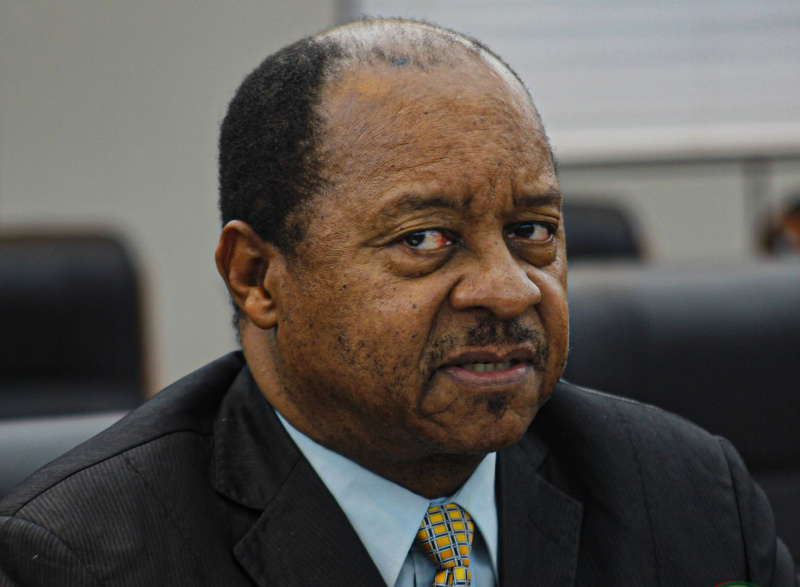Zimbabwe Struggles To Contain Corona Virus

INADEQUATE funding by the government and alleged corruption in the public health sector has left Zimbabwe struggling to contain a Covid-19 pandemic which is now spreading dangerously among health workers, according to the head of the country’s nursing organisation.
But the government has dismissed these allegations by Enock Dongo, president of the Zimbabwe Nurses Association (ZINA) who says health workers are now the primary source of coronavirus infections in the southern African nation because the State is not providing enough assistance.
“The percentage of health workers testing positive is more than that of ordinary citizens,” he said in an interview.
“This means that health workers have become the source of infection in the case of Zimbabwe.”
Dongo said the situation in Zimbabwe’s hospitals had deteriorated badly, with nurses now being forced to use ordinary plastics as Personal Protective Equipment (PPEs) and more than 100 of them testing positive for Covid-19 within a week.
Zimbabwe government figures for Covid-19 infections were recorded at 2,434 by July 25.
In recent weeks nurses have staged demonstrations lamenting the lack of professional equipment and stricter monitoring of their work to assist them to manage possibilities of contamination.
The demonstrations came against the backdrop of an alleged US$60 million fraud within the Ministry of Health which claimed the scalps of the responsible Minister and several senior officials in his Ministry and across government health institutions.
Dongo accused the government of not funding the health workers adequately and of paying little regard to the plight of the frontline workers.
“The government is not doing enough, there are no PPEs in hospitals, gloves might be there but there (are) no face masks, gowns, liquid soap or in some instances water, they are wearing the same clothes at work and on their way home,” he said.
“Because they are poor, they go on to use the same public transport to go home from work, the same supermarkets, they mix with everyone at their home where they rent in locations sharing the same toilets.
“We cannot comment about the Drax case because the government has been silent, the government needs to officially come out and talk to its health workers so we know what is happening at an official level.”
According to local and regional publications, the government allegedly lost US$60 million to a company called Drax owned by Delish Nguwaya.
Zimbabwe government spokesperson Nick Mangwana told this publication no such amount had been lost while government actually owes the company US$700,000 instead.
“There is no money that was lost on the Drax case. On the contrary, the government owes Drax money because when the government gave Drax US$$2 million Drax supplied medication worth US$2,7 million, but the question is whether that was the correct value.
“That is the only transaction; this US$60 million you hear is absolute nonsense. Yes, the contract they wanted was a contract for US$60 million which was cancelled,” he said.
Drax’s papers that purport it is registered in the United Arab Emirates (UAE) could not be verified on any of the various UAE databases including the national UAE Ministry of Economy database of all businesses, yet it has a Dubai address, Fujairah Tower, 11th Floor, Fujairah.
Mangwana added that Health and Child Care Minister Obadiah Moyo was fired for abuse of office where people were pushed to take a contract which flouted tender regulations and leaning on institutions when security had indicated Drax did not pass due diligence.
He refuted allegations that the Minister was fired for bribery.
Said Mangwana: “It is business. If you sell things at inflated prices, the reason why the health minister was fired is that the whole transaction flouted our tender regulations.”
“These were new companies that did not pass due diligence, it is not that the Health Minister took money, the US$60 million is in your heads.”
Questions have also been raised about another healthcare contract worth US$66, 375 with Jaji International, one of whose directors Garikai Mushininga has been photographed with members of the first family on numerous occasions.
According to online publication ZimLive, Valdano Brown, one of Mnangagwa’s bodyguards, is a shareholder in the company.
Jaji International whose South African offices, 101 Shepherd Tree Street, is a block of residential flats had never traded for the past five years until it got the deal to supply 4,500 test kits to Zimbabwe as indicated by one of its invoices (Invoice 70158) to the Ministry of Health.
According to Mangwana the kits were supplied, and are being used.
Mushininga denies that Jaji acted corruptly, saying the allegations are part of a political smear campaign.
Local publication, NewsDay reported Drax had supplied equipment at inflated prices of US$28 for a face mask which would normally cost
US$4 at retail price and US$90 for other PPEs going for $30.
Drax, whose US$60 million tender to supply PPEs has since been cancelled “for alleged public interest,” denies the allegations and is threatening to sue the government.
“Our client performed all its obligations in terms of the law. Our instructions are to indicate that your purported cancellation … is null and void,” according to a letter from Drax lawyers Samukange Hungwe Attorneys dated 13 July 2020.
At the time of the allegations, then acting Social Services Minister Sekai Nzenza admitted to Parliament that they did not exercise due diligence as they were behind time in the fight against the pandemic which at the time of writing had claimed some 650,000 lives across the world.
Zimbabwe Hospital Doctors Association (ZHDA) spokesperson Masimba Ndoro who has been spearheading a campaign for PPEs says poor management of funds could just signal the beginning of Zimbabwe’s worst-ever health system crisis since independence in 1980.
“Currently the health care system is on autopilot,” Ndoro said, pointing at the dismissal of the Minister of Health and endless labour unrest in Zimbabwe’s main public health sector over pay and conditions of service.
“With this kind of formula, what we are witnessing is a recipe for disaster; this is actually a ticking time bomb because once you have a dysfunctional health care system like ours, which was already on its knees, who knows where we are headed?” he says.
Zimbabwe Anti-Corruption Commission (ZACC) chairperson Loice Matanda-Moyo says the commission will soon start a lifestyle audit of all those involved in the health and other suspicious deals.
“This is an intensive lifestyle audit on some of Zimbabwe’s rich people who will be required to produce invoices for goods or services rendered that have to match their acquired properties,” said Matanda-Moyo.
But critics say the commission is talking more than it is delivering.
This story was produced by Leopold Munhende. It was written as part of Wealth of Nations, a media skills development programme run by the Thomson Reuters Foundation. More information at www.wealth-of-nations.org. The content is the sole responsibility of the author and the publisher.



